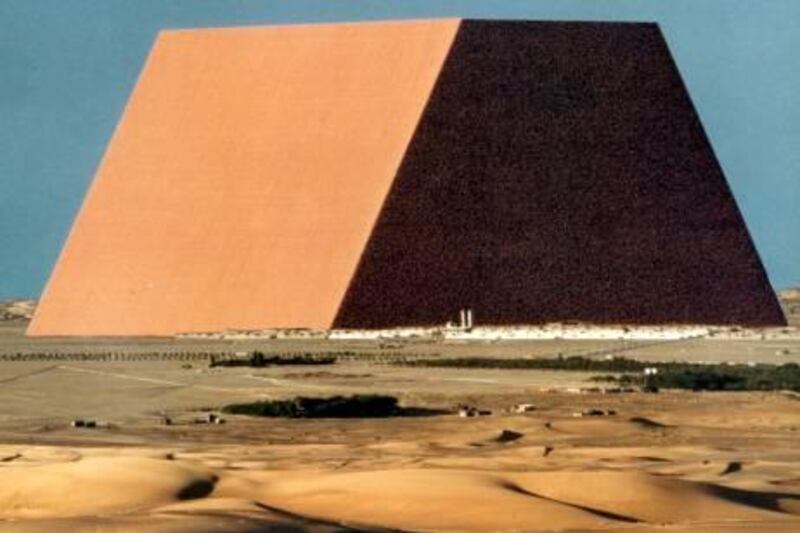"He writes history by wrapping history," was how Christo was introduced at his Monday night lecture at the Intercontinental hotel in Abu Dhabi. The venue was packed with more than 300 art enthusiasts of all ages. A dozen resorted to sitting on the floor, even though they were in suits and cocktail dresses.
The man they had all come to watch did not disappoint.
Christo surveyed his and his late wife Jeanne-Claude's joint artistic career spanning five decades. Sitting in the audience area, he controlled a slide show presentation of archived photographs and preparatory drawings. He recited everything from memory: countless names, dates, even the measurements of their pieces.
Afterwards, Christo took on questions from the audience, but not before issuing a heads-up. "I will not talk about politics or religion, and certainly not about other artists. I will only talk about ourselves," he warned. "I am 76 and still want to talk about myself."
The audience complied, inquiring about difficulties the couple had encountered in their artmaking ("The hardest thing is getting permission. Everything in the world is owned by somebody"), what it's like to work with one's wife ("It's a lot of screaming. 'You're an idiot!' she would tell me"), and about the topic the couple avoided: the meaning of their works. They always maintained that the purpose of their projects was simply to be themselves.
"Jeanne-Claude would say, 'We do works of joy and beauty'," Christo said, chuckling. "For me, anything that has meaning has propaganda. Is meaning art? Or isn't art about aesthetics?"
One question was about the rationale behind their works' temporary nature. "We have tenderness for things that don't last," Christo replied. "Jeanne-Claude and I love childhood. We love life. Once in a lifetime, then never again."
There is no question that Christo misses his collaborator. Each time a photograph flashed on the screen, the laser pointer would always be directed at his wife's face.
"That's Jeanne-Claude, on the left side … That's Jeanne-Claude's red hair … Here, Jeanne-Claude in the desert."
One of the last questions asked was how Christo was doing without his wife.
"I'm sorry she is not here," he said. "She would've been happy."
Later, the microphone was passed on to a woman sitting on the floor at the back of the auditorium. "I don't know if you remember but we've met," she told Christo. "I took a train to Berlin with my children to see your wrapped Reichstag. My kids never liked museums, until they saw your work. They discovered art."
Christo, who talked frenetically the whole night, was silenced. He looked down for a few seconds. The entire audience was still. Then he called out for the next question, refusing to respond.
The night ended with a passionate standing ovation for the art world figure, who broke off the applause by dashing out of the room.
As he hurried out, a representative from the NYUAD Institute went on stage to announce the inauguration of an annual grant in the name of Christo and Jeanne-Claude.
"In waiving the cost of his visit to the Institute, Christo provided the very generous seed funding for this annual grant, awarded on competition, open to any art student in the UAE, in support of realising an art project aimed at being displayed in public."
The competition will be launched in the spring next year.










